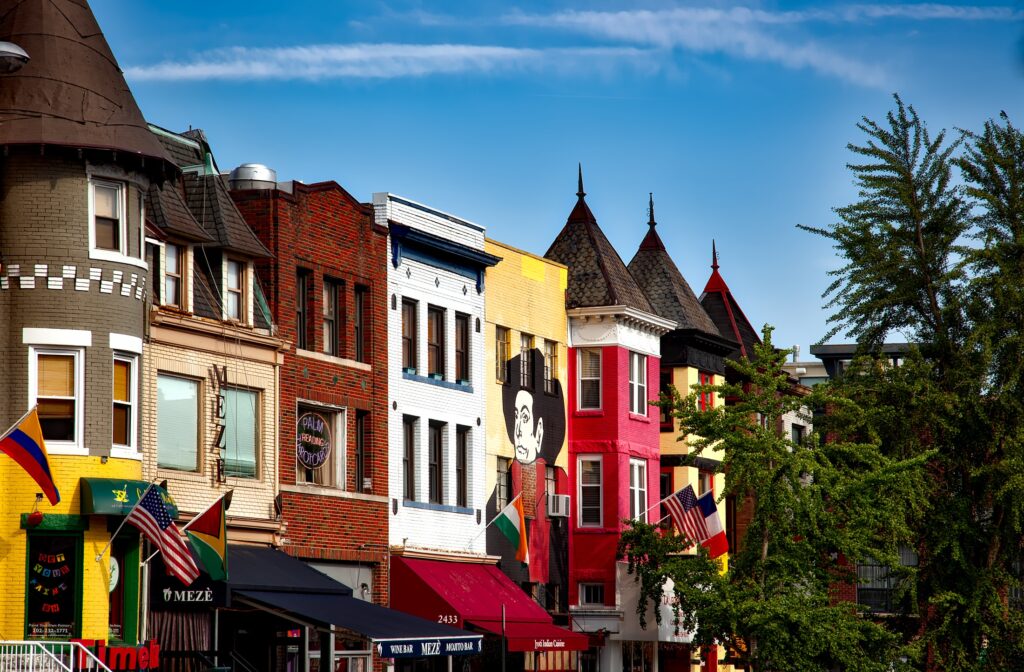Buying a property is one of the biggest investments you’ll ever make in your life. Whether you’re renting a place or buying one, there are certain things to consider. To get good returns on your investments, you should carefully observe market trends.
Choosing the best neighborhood is almost as important as choosing a house or apartment when you’re looking for the best places to live. Secure, reasonable, and with people you can imagine becoming friends with are all things you need to consider. Additionally, depending on your family’s needs, you may want to find a good school district, playgrounds, and other things.
We must not forget that the location where we settle down and plant our roots is just as crucial as the dwelling in which we develop our lives. A happy home is often a product of its location. Therefore, when buying a home, homebuyers should be aware that they are acquiring a part of their neighborhood as well as a house.
In order to make sure that you choose the best neighborhood for your family, you should keep in mind the following factors.
The location
The location and locality of a neighborhood are important factors that affect the value of a property. In terms of its in-market demand, location is crucial. Also, determine whether the neighborhood where your property is located is easily accessible by public transportation. Ease of access can ensure that you’ll be able to shift your home conveniently whether you’re moving locally or from some other city.
Additionally, check that the neighborhood must also be child-friendly and close to schools, bus stops, markets, and hospitals.
Explore the Area
Take a walk through the neighborhood. By experiencing it at different times of the day, you will be able to understand how the area differs. Note the safety of the roads, sidewalks, and front yards of the houses. Observe whether people you encounter make eye contact with you. It’s likely to be a friendly and safe community if they do.
See if there are any vacant lots or abandoned buildings. Commercial developments could be built on both, changing the neighborhood’s ambiance and affecting property values. Take note of traffic flow and street noise. Also, see if the area is well-lit with street lamps during the darker hours.
Furthermore, note what type of individuals live in the area. For example, what is the average age of the residents? Are they young families? Adults? Retired? Is the community well-diversified by age? Are there mainly single-family homes, apartments, high rises, or condos in the neighborhood? Take note of all these things before making a decision.
Safe & Secure
Security and safety are two things you should never compromise on. Irrespective of whether you’re buying property for investment or your own use, you need a neighborhood that’s safe and secure. Choose those that provide 24/7 security to their residents and have CCTV cameras installed on their premises. Safety is better than regret. Make sure a prospective neighborhood is safe before moving in. Police departments provide interactive crime maps that include recent crimes and the names of registered offenders. In case of an emergency, how far are you from the nearest police station, hospital, and fire station?
Available Amenities
Prepare yourself for your family’s needs by finding out where all the stores, farmer’s markets, parks, restaurants, and other hot spots are; are they located close to your home-to-be? The value of a property is greatly determined by the amenities that accompany it. Every property must have access to the basic necessities, such as water, electricity, and sewerage. These days, however, most neighborhoods offer a myriad of other amenities as well. Facilities such as 24/7 in-house security, green areas, and other recreational opportunities are pretty common. Thus, before deciding where to move in, ask about the facilities.
Prospects for the future
You will likely make one of the largest investments of your life when you buy a house, so it’s wise to consider the future prospects of the area you intend to buy it in. Consequently, it is a good idea to research the past trends and future projections of the neighborhood you’re planning to move in. Local chambers of commerce or city hall are good sources of information on the neighborhood. Future developments can change the neighborhood and cause increases in taxes and traffic. Therefore, you should investigate the future potential of the area in order to decide if that outlook is suitable for you and your family.
Environment & Reputation
The environment of the area where you intend to buy property is another important factor you should consider. First, examine the area thoroughly before you purchase, and only buy if you like the ambiance of the area. Similarly, also inquire about the reputation of the area. For example, is it a respectable area for families to reside in? Does it have any notorious links? These are some of the basic things you have to consider before finalizing any neighborhood.
The Takeaway
In all, there’s no sure way to determine how suitable a neighborhood will turn out to be for you and your family. Still, these key points listed above will definitely make it easier for you to pinpoint an area that meets your needs. The more thoroughly you do your homework on the neighborhood, the lower will be the chances of making a bad investment.
Related Posts: